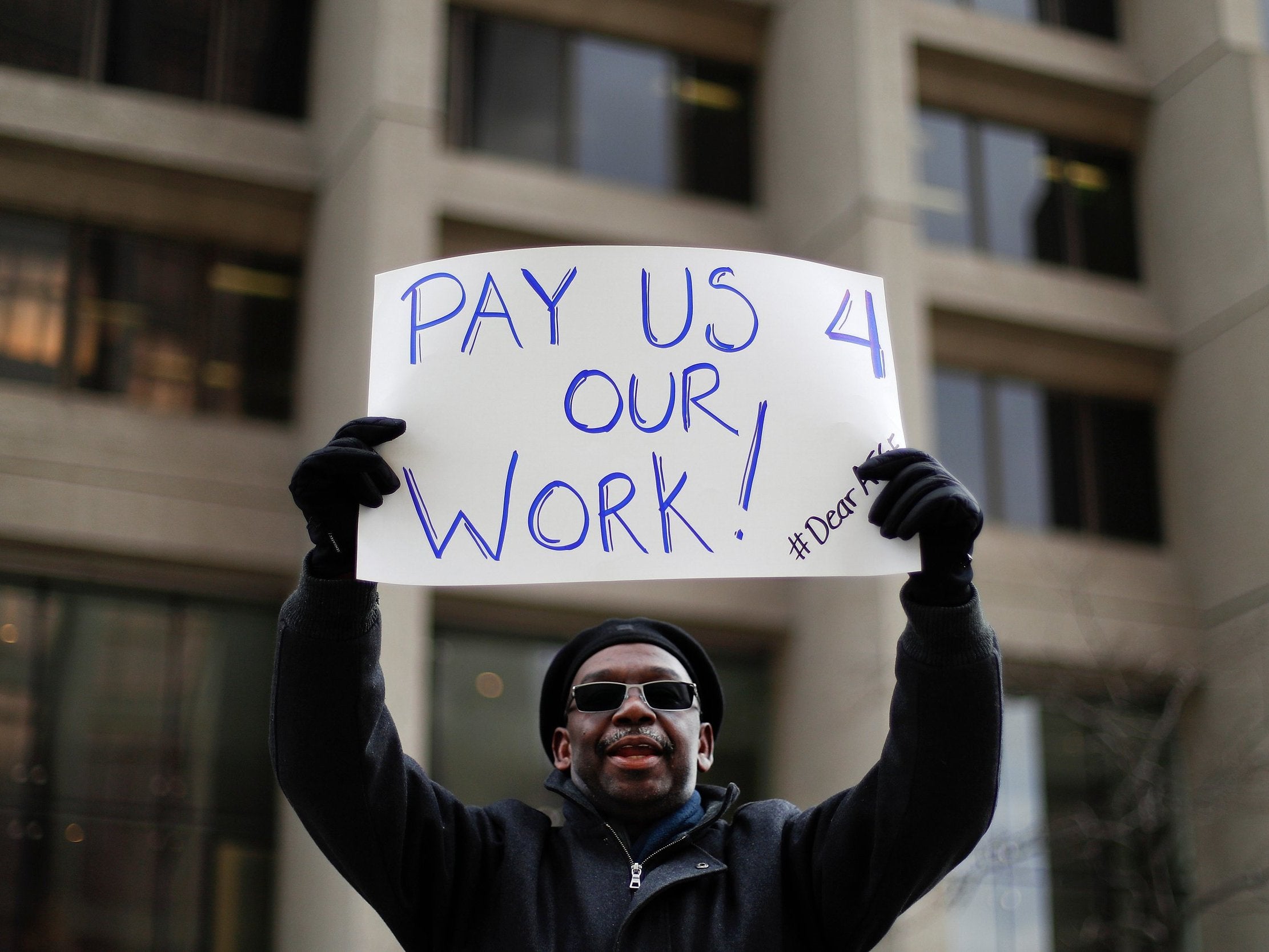Prison workers warn of ‘escapes’ as government shutdown continues: ‘We’re the front line keeping MS-13 locked up’
For ‘essential’ prison workers, the shutdown has meant weeks of working alongside gang members and murderers while worrying about paying the bills

Guards in some of America’s most dangerous prisons are warning that escapes and riots could be coming if the partial government shutdown continues to drag on with no end in sight.
Many of those deemed “essential” to government work, such as prison officials, are having to work without pay, leaving some worried that gaps could become rife if guards are pushed away by the instability, or call in sick. The shutdown, sparked by the struggle over border wall funding between President Donald Trump and Democrats in congress, is already into its 21st day.
Jose Rojas, a 24-year-veteran of the Prison Bureau, said that he is worried that a lengthy government shutdown could exasperate an already delicate situation at the Coleman Federal Prison Complex where he works in central Florida.
“You’re going to have riots. You’re going to have predatory inmates pick on the weaker inmates. You’re going to have rape. You’re going to have violence towards the staff. You’re going to have escapes,” Mr Rojas told The Independent, describing what he sees as a possibility if the government shutdown lasts for months and drives guards away.
“They don’t realise what’s happening right now,” he said of the politicians in Washington arguing over the border wall. “We have a lot of MS-13, Latin Kings, we have the worst of the worst. If we don’t have anyone to watch the inmates, we’re going to have riots, we’re going to have escapes.”
With child care costs, medical bills, and mortgages to pay, many workers have been told to plead with creditors and landlords for respite as the wait for the shutdown to end.
While some workers have been simply furloughed, essential workers have been instructed to come to work even though they will not get paid, or face potential professional repercussions if they do not. To make up for the lost income, some are being forced to work extra hours moonlighting odd jobs to keep food on the table. For Mr Rojas, it is driving for Uber
The fact politicians in Washington are willing to risk guards’ safety by adding extra stress on top of an already dangerous and demanding job has left many frustrated, with the shutdown approaching the longest in history.
Mr Rojas’s experience and perspective is not unique for the contingent of prison guards and workers who are in charge of making sure violent offenders – including the types of criminals with gangs like MS-13 that Mr Trump so frequently cites as a reason for the border fight – stay locked up and away from the general population.
“We are 100 per cent the front line for the individuals who are incarcerated and the public. If it weren’t for us, those people wouldn’t stay in prison,” Roger Ware, a prison worker in West Virginia and the vice president of the local 420 chapter of the AFGE, said.
Mr Ware has begun working on the weekends in construction to help pay his mortgage, keep food on the table for his five children, and to make sure he and his wife – another worker at the United States Penitentiary in Hazleton – can even afford the gas to make the daily 120-mile round trip trek to the prison job where they are not getting paychecks and have no idea when they will.
The federal government shut down after Mr Trump decided that he would not sign government funding bills to that do not include $5.7bn to erect a physical barrier on the US-Mexico border that he says is essential to keeping the US safe.
Democrats have rejected that request, offering $1.3bn in funding for border security but refusing to spend money on a wall that critics say would have limited impact on immigration and smuggling issues the president says shows it is necessary.
On Wednesday, any ongoing talks between the president and Democrats appeared to break down when Mr Trump abruptly ended a meeting in the White House after Speaker of the House Nancy Pelosi refused to promise to negotiate border wall funding.
Meanwhile, federal workers including those in US prisons have been told to reach out to their creditors to tell them of their situations and hope that they will be given some relief. Some banks have offered zero interest loans to help those workers get by, but that appears to be the exception to the rule.
Justin Tarovisky, the executive vice president of local 420 in West Virginia, said that instructions to federal workers to ask for charity from landlords and banks is a “slap in the face”, especially considering the difficult conditions he and his colleagues face on a daily basis.
“When I leave the prison, when I leave those walls behind me, I gotta go and I gotta pay my bills. I gotta pay for daycare. I gotta pay for gas. I gotta pay for my cellphone,” Mr Tarovisky said.
He continued: “When you’re being told that you are not going to be paid, that’s a slap in the face of the hard-working blue collar workers, federal workers, who go inside these walls to keep America safe.”
Join our commenting forum
Join thought-provoking conversations, follow other Independent readers and see their replies
0Comments